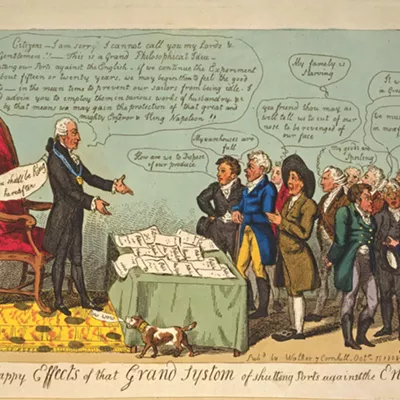One of our news reports this week has come under fire on social media — not because it’s inaccurate or one-sided, but for the opposite reason, because reporters included the perspectives of all the parties involved.
The story explores a powerful #MeToo reckoning that unfolded on social media in late June. Numerous Spokane women posted publicly about being raped and assaulted, often in connection with the downtown nightlife scene. They shared photos of bruises and, in one case, a screenshot of what looked to be a confession. People named names and tagged businesses connected to the men accused. A list formed.
But then it mostly disappeared from public view. The list was deleted and other posts were hidden by women apparently afraid of being sued by the very men who harmed them. No one was arrested.
Most people in Spokane and beyond would have absolutely no clue that any of this had ever happened — if not for Inlander reporters Samantha Wohlfeil and Nathan Weinbender, who pursued the story. They talked with numerous survivors. They talked with victim advocates. They talked with Spokane Police. They talked with owners of businesses whose employees or regular customers had been accused. And, yes, they talked with one of the men accused, Jackson Cate, who, according to a publicly shared screenshot, had acknowledged to a friend that “I raped” someone.
In reporting their story, Wohlfeil and Weinbender spoke with Cate for roughly 90 minutes and in that interview, he confirmed he had indeed written that message. He also told them why he had made such a startling admission in the first place: He thought he was about to be named publicly, telling the reporters, "After I saw this other person being outed, I thought to myself, 'This could absolutely happen to me, too. Maybe these women will do the same.'"
Wohlfeil and Weinbender also pressed Cate about other accusations that they had uncovered in the course of their reporting. Cate did say he believed the women wanted to have sex with him, but speaking to the reporters, he also acknowledged that he wasn’t considering the women’s ability to make decisions while impaired.
"I absolutely believe that I was in the wrong," Cate told them.
By our confronting Cate, by including him in the story, by asking him questions and sharing what he said, several commenters said we were “disgusting” or, in one case, “f—-ing sickos,” arguing that Cate should not have been “given a voice” or a “platform.”
As one reader writes us, “I am upset with the fact that seeking to acquire a rapist’s side of the story is always going to be a sidestep from believing women. It was also largely inappropriate to give Lucky You Lounge owners, Karli and Caleb Ingersoll, a voice that read as virtue signaling.”
Unfortunately, that view misunderstands the nature of journalism. Of course, if we’re naming people in the story, we have to try to get their perspective. Doing so only makes our reporting stronger and reveals to readers the lengths we went to get the whole story; it additionally shows anyone who might be inclined to doubt a woman’s account that our reporting was able to independently corroborate their claims. That doesn’t minimize the women’s stories; it does the opposite.
On social media, you can unfriend someone, unfollow them or block them entirely. That’s not how reporting works. The Society of Professional Journalists’ code of ethics includes this mandate: “Diligently seek subjects of news coverage to allow them to respond to criticism or allegations of wrongdoing.” Additionally, it states: “Consider the implications of identifying criminal suspects before they face legal charges.”
Some frustrated readers also lamented that our reporting didn’t do more — that, in essence, it didn’t mete out justice and alleged rapists were allowed to walk free. In that regard, the article was probably unsatisfying. But reporters can’t arrest people, pass legislation or elect reform-minded leaders to public office. We highlight problems and potential solutions, but what the community and its people do with that information is up to them.
I’m not trying to suggest that any of this is easy. These types of stories are complicated and fraught with pain, and they force reporters to confront a host of dicey moral and legal questions. In the process, we never take lightly our responsibility to be fair and sensitive to people who have undergone horrific trauma and offer to share their heart-rending accounts with us. As SPJ tells us, “Show compassion for those who may be affected by news coverage. Use heightened sensitivity when dealing with … victims of sex crimes.”
Indeed, if these types of stories were easy, if they didn’t require deep reporting and tough decisions, other news outlets in our community might have done the story before us. They didn’t. We at the Inlander thought it was an important issue — one that has too often been marginalized or ignored entirely — and our reporters worked on it for weeks. Throughout that process, they strived to follow the best practices of their profession, beginning and ending with this: Talk with everyone.
Ultimately, we know what we know about this story because they did just that.
Jacob H. Fries is the editor of the Inlander.





















